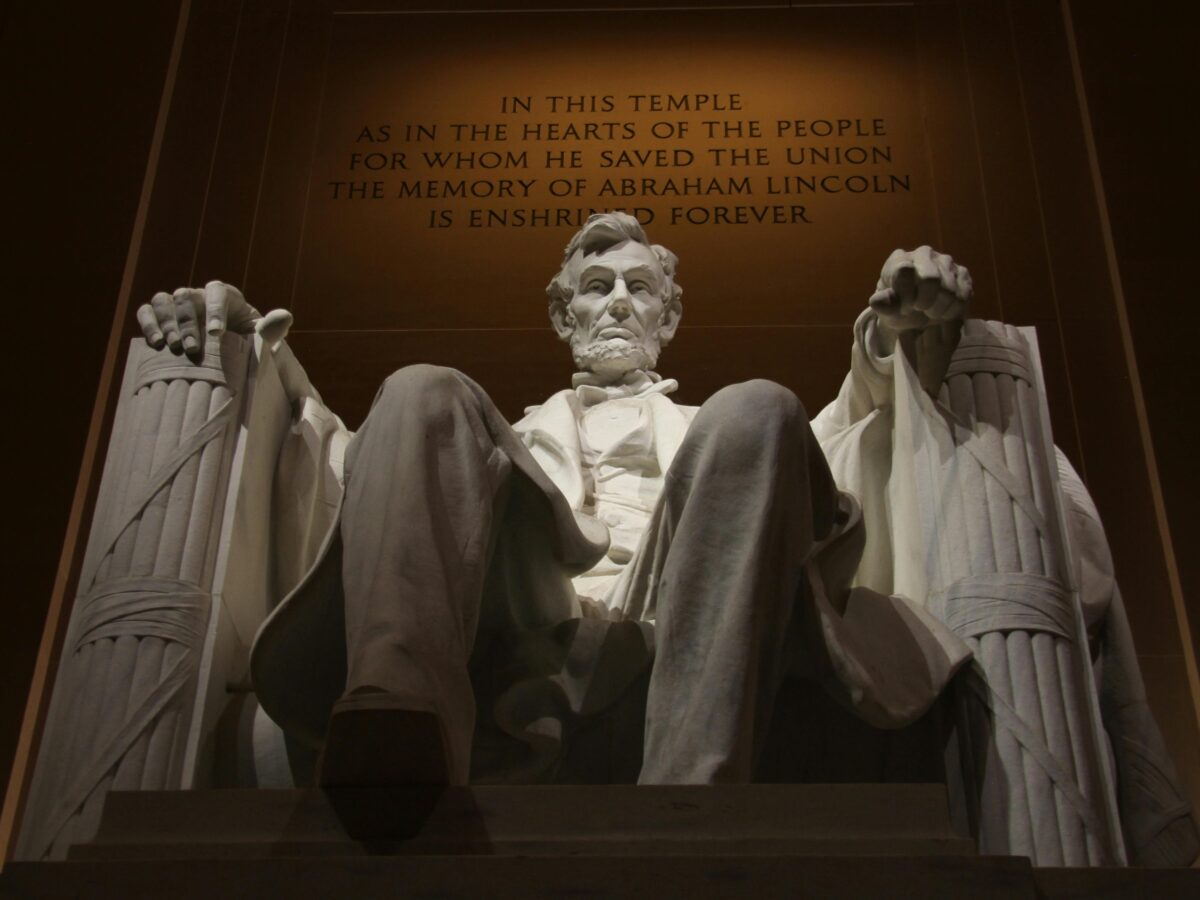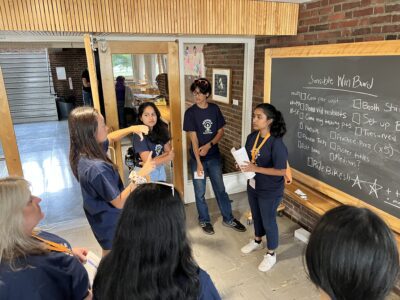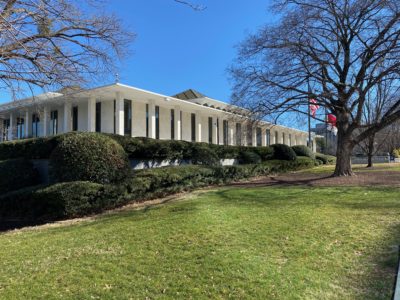

A note from the author: For nearly nine years, the Friday with Ferrel column has appeared as a regular feature of EdNC.org. Now comes a transition. Through 2024, I plan to collaborate with Mebane Rash, Molly Urquhart, and the EdNC team to produce long-form essays of policy analysis. I remain grateful for the opportunity to contribute weekly commentary — and now look forward to the challenges of researching, thinking, and writing on major education issues in our state.
Eight score years ago, the nation’s first Republican president delivered a two-minute speech that resounds timelessly in the American mind.
On Nov. 19, 1863, Abraham Lincoln participated in a ceremony dedicating a cemetery at Gettysburg, PA, where four months earlier a Civil War battle had left 7,000 men dead and 33,000 wounded.
“Four score and seven years ago,” he began, “our fathers brought forth on this continent a new nation, conceived in liberty and dedicated to the proposition that all men are created equal.”
Lincoln spoke in what historian Drew Gilpin Faust describes as “biblical cadences.” Its lyricism and compactness, as well as its message, made the Gettysburg Address a regular assignment for young students to memorize in their early encounter with U.S. history.
At its 160-year anniversary, the Gettysburg Address is worth revisiting not only as an educational exercise but also as a touchstone for reflecting on today’s political and cultural stresses in the United States and in North Carolina.
“Now we are engaged in a great civil war, testing whether that nation, or any nation so conceived and so dedicated can long endure,” Lincoln said.
In his book, “Lincoln at Gettysburg: The Words that Remade America,” Garry Wills writes that the president “transformed the ugly reality” of a civil war battle into “something rich and strange — and he did it with 272 words.” As the cemetery ceremony concluded, says Wills, the large crowd departed into a “different America. Lincoln had revolutionized the Revolution, giving people a new past to live with that would change their future indefinitely.’’
Even so, Lincoln’s words did not work overnight magic in settling the brutal conflict between North and South over slavery. The three-day Gettysburg battle sent the Confederate army into a south-bound retreat, and yet the war lingered on for another 16 months.
As powerful as he often was with words, Lincoln was also a practicing politician in a competitive, contentious system, and a tough-minded commander in chief who removed generals for failing to pursue the war aggressively. Among his governing accomplishments was signing the Morrill Act of 1862, which authorized land grants to establish colleges, the first federal support for higher education.
Lincoln’s views on slavery evolved over time. It was two years into his presidency before he issued the Emancipation Proclamation. The proclamation came 11 months before the Gettysburg Address.
At Gettysburg, Lincoln concluded with a long rousing sentence calling on his fellow citizens to “resolve that these dead shall not have died in vain, that this nation, under God, shall have a new birth of freedom, and that government of the people, by the people, for the people, shall not perish from the earth.”
In speaking of “these dead” and of “the people,” Lincoln did not distinguish between Union or Confederate soldiers. In her book, “This Republic of Suffering: Death and the American Civil War,” Faust points out that the Gettysburg cemetery “was arranged so that every grave was of equal importance” and that “every soldier mattered equally regardless of rank or station.”
Though Lincoln did not speak of your people versus our people, he surely understood that such forces as racial prejudice, tribalism, xenophobia, self-interest, and self-identity would remain at work fostering divisions in a continent-wide country. Today, the test of whether a nation conceived in liberty can endure comes from a cascade of events made vivid and immediate through modern media.
The most recent Republican president stands accused of dozens of violations of the law, several stemming from baseless efforts to overturn the 2020 presidential election. Donald Trump incited an assault on the Capitol as Congress assembled to certify Joe Biden’s victory.
The U.S. Supreme Court reversed a ruling on women’s right to abortion that had stood for half a century. The nation saw several incidents of Black men dying in police custody. A long chain of mass shootings, some in schools, seem without an end. Strains of antisemitism and islamophobia still course through the body politic. A viral pandemic shut down businesses and schools, illuminating inequities and stirring renewed skirmishes of culture war.
An election year in the state and the nation approaches with a tensely divided electorate and with the health of democracy at stake. Amid the clash of candidates and partisans, Lincoln’s Gettysburg Address gives Americans political bearings by so eloquently asserting that their nation rests on essential propositions: that all are created equal and that each generation has responsibility to ensure that government of, by, and for the people “shall not perish from the earth.”




